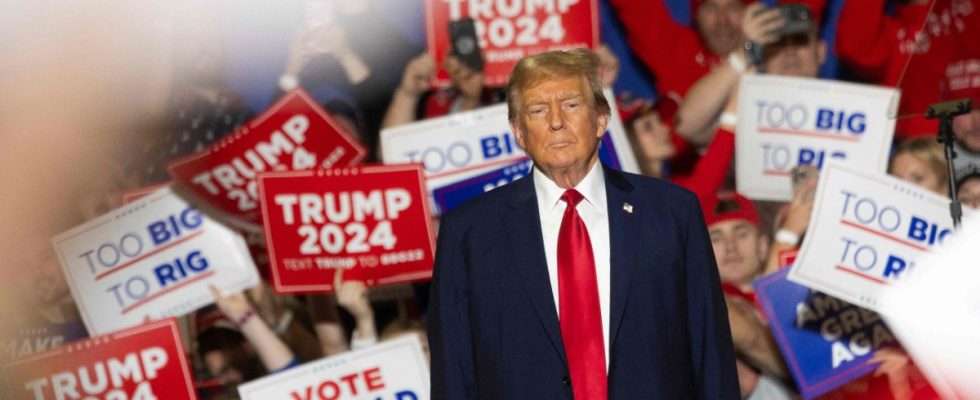A re-election of Donald Trump as US President could also have a significant impact on economic growth in this country. This is the result of a study by the Cologne Institute of German Economics (IW), which was published on Monday. Accordingly, German industry, which is heavily export-oriented, would be among the main victims of the tariffs that Trump wants to impose on all deliveries of goods from abroad. They could reduce overall economic performance in the Federal Republic by up to 150 billion euros over the US President’s four years in office.
Trump had announced that, if elected, he would resume the policy from 2017 to 2021 and impose a minimum tariff of ten percent on all US imports. This would hit the German auto industry in particular, but also other sectors, very hard because their products would become more expensive for American customers or the companies would have to accept significant losses in profits. A 60 percent tariff will be due on imports from China.
In the study, the IW assumes two scenarios. In the first case, Trump is implementing his plans as announced, which would cost the German economy a good 120 billion euros in gross domestic product (GDP) due to falling exports. In the second case, the economists also assume that the People’s Republic of China will defend itself and increase the existing tariffs on imports from the USA by 40 percentage points. This shock would paralyze global trade as a whole and also dampen investments by companies and private households in this country. According to the study, the result would be further German GDP losses of around 30 billion euros.
It would also be expensive for the Americans
Those affected included not only the German economy, but also the US economy itself. It is dependent on imports, which would now become more expensive – either for the importing companies or for the end customers. The bottom line is that in scenario one there would be a GDP loss of the equivalent of 550 billion euros for the USA and in scenario two it would be 900 billion euros. Even in his first term in office, when Trump launched a real trade war on China in particular, but also the EU steel industry, the Americans were not least the ones who suffered – even if the president always claimed the opposite.
Contrary to all his announcements, Trump also failed to reduce the deficit in US foreign trade, which he viewed as a disgrace. This time too it is likely to fail because the balance sheet is influenced not only by the flow of goods, but also by the immense deficits in the US national budget.
In order to arm itself against a renewed conflict, the IW recommends that the EU use the remainder of President Joe Biden’s term in office to put trade relations with the USA on a more stable basis through steel and raw materials agreements. The threat of countermeasures could also help deter Trump from increasing tariffs. The Europeans also needed further free trade agreements, for example with Australia, India, Indonesia and the Mercosur countries in South America.

